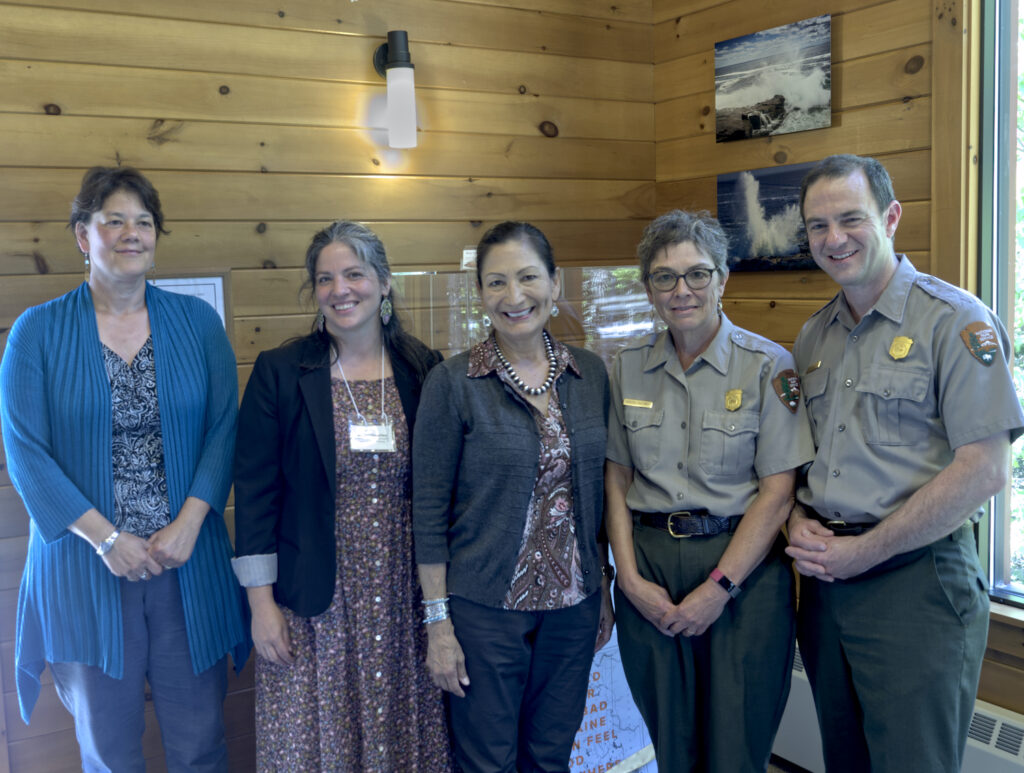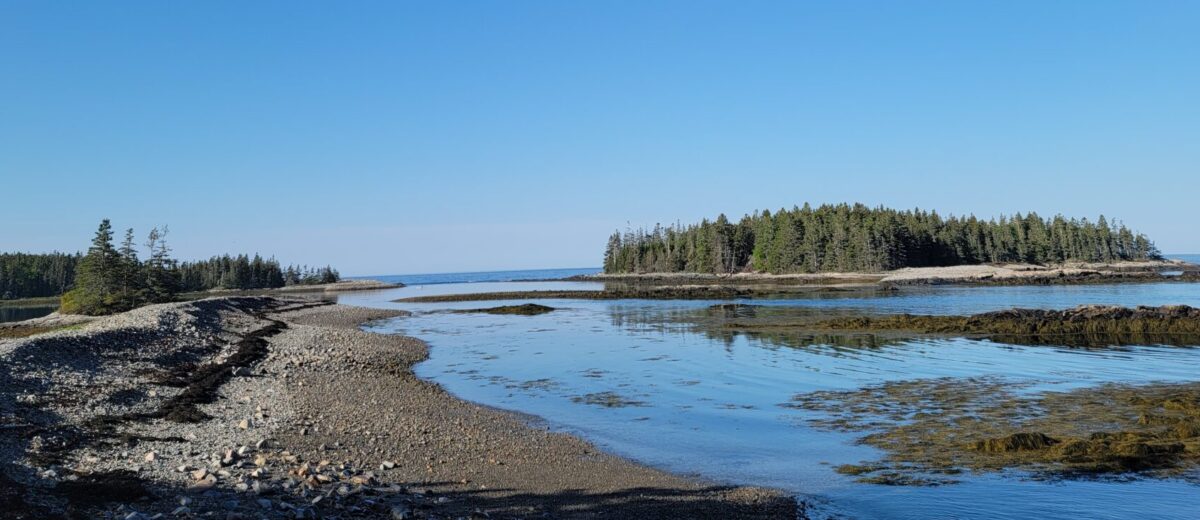by Nick Fisichelli
We had an amazing confluence of events on our Schoodic Institute campus in mid-June. As the Research Learning Center in one of America’s most popular national parks, we have positive impacts far beyond the boundaries of Acadia National Park. Over a 24-hour period, we hosted leaders from the U.S. Department of the Interior, Wabanaki Nations, and the State of Maine; members of the U.S. Senate and House of Representatives; and numerous musicians including Yo-Yo Ma. What an amazing group! All of these people were drawn to this place, to greet the rising sun together, and to work towards a better future through art, science, and dialogue.
We had several opportunities to share our innovative partnership at this Research Learning Center merging science, education, and immersive experiences. We drew attention to the next generation of learners and leaders whose experiences in Acadia will be springboards for careers in science, resource management, education, policy, and whatever meaningful path they take. We need to bridge the college-to-career gap, pay a living wage, and open doors to a more diverse and effective workforce responding to climate change and related challenges.
Schoodic Institute science is the foundation for the transformational experiences we are fostering for the next generation. Our focus is understanding the consequences of rapid environmental change and engaging people in the science and solutions. There is no better place to do this work than our national parks, the places holding our natural and cultural heritage – to engage people in science, to raise public understanding, awareness, and support to address pressing challenges. This campus and our institute are one small place doing this really big work.
We shared the strong partnerships that exist here in Acadia and specifically among the National Park Service, Friends of Acadia, and Schoodic Institute. We are able to do so much more together than any of the partners could do on their own.
As I reflect on these events and meeting these amazing people, three words come to mind: obligation, opportunity, and optimism. I feel a tremendous obligation to work towards a better future, to help understand our changing world, and to engage people in critical science for parks, people, and the planet. I see so much opportunity through our work and the great interest in Acadia, local communities, and parks across the nation to bring people together and foster conversations and understanding in a world that is far too divided. Finally, I am strongly optimistic about the future, the path we are taking, and the young leaders in conservation and science who will be addressing the great challenges. Thank you for being part of the solution and fostering a better future.

